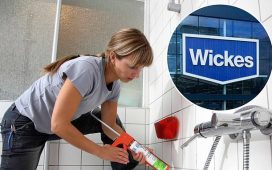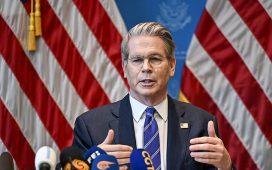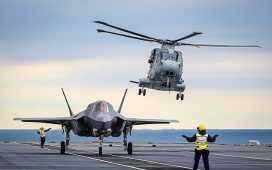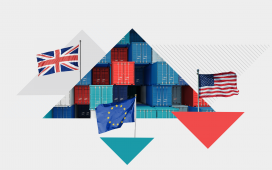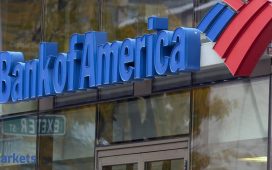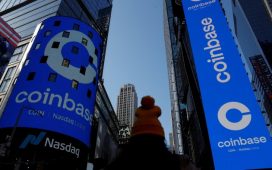
The US carmaker was granted the approval under certain conditions, according to a person with knowledge of the matter, who asked not to be identified because details of all the criteria aren’t clear. Tesla did manage to clear two of the most important hurdles: reaching a mapping and navigation deal with Chinese tech giant Baidu Inc., and meeting requirements for how it handles data-security and privacy issues.
Tesla shares soared as much as 12% shortly after the start of US trading, while Baidu jumped 2.4% in Hong Kong. Tesla didn’t respond to requests for comment on the status of its attempt to secure regulatory approval.
The developments came after Tesla Chief Executive Officer Elon Musk made an unannounced trip to China on Sunday, seeking approval for driver-assistance software that could help arrest the carmaker’s revenue decline. While the company’s suite of features require constant supervision and don’t make Teslas autonomous, the company charges $8,000 for them in the US, or $99 a month for a subscription.
Musk met Sunday with Premier Li Qiang, who as the Chinese Communist Party secretary for Shanghai helped the company set up what is now its top plant globally. His private jet left Beijing on Monday, according to FlightRadar24.While Tesla initially enjoyed a red-carpet welcome in China, its fortunes have faded recently as it faces tougher competition from domestic EV makers led by BYD Co. Tesla’s share of China’s auto market shrank to around 6.7% in the fourth quarter of 2023, from 10.5% in the first quarter of last year, according to Bloomberg calculations based on China’s Passenger Car Association data.Advanced driver-assistance systems are becoming increasingly common in China, with many local players including Xpeng Inc. and Xiaomi Corp. using them as a selling point for vehicles. Carmakers also have had success in charging extra for driver-assist features, which Tesla could use after having cut prices to levels that may have wiped out the operating profit it’s earning from the market.Approval for FSD in China would be a major boost for Tesla, which is coming off its first year-over-year decline in quarterly revenue since 2020. Even after slashing prices, the company sold fewer cars in the first quarter. Musk is cutting headcount by at least 10% and looking to accelerate new models, including less-expensive vehicles, that could be ready by early 2025, if not before year-end.
Musk’s surprise China visit is “a watershed moment,” Wedbush Securities senior analyst Dan Ives said in an interview with Bloomberg Television. “This could open up FSD in China, which I view as unlocking what really could be the golden opportunity for them.”
Teaming with Baidu — one of about only 20 qualified suppliers with the country’s top-level mapping credentials that can be applied to driver-assistance functions — will allow Tesla to tap the Chinese company’s lane-level navigation and mapping services. Tesla has been using Baidu for in-car mapping and navigation since 2020.
While getting the green light for FSD in China might help Tesla claw back some lost ground, its driver-assistance systems have proved problematic in the US. The top US auto-safety regulator just opened a probe into the company’s less-capable Autopilot system, citing 20 crashes that have occurred since December involving vehicles that received an over-the-air software update to prevent misuse.
During an earnings call last week, Musk emphasized the importance of autonomous-driving development, saying that people who doubt Tesla’s ability to “solve” autonomy shouldn’t invest in the company.
The Wall Street Journal reported earlier Monday that Chinese officials had told Tesla that Beijing had tentatively approved the company’s plan to launch FSD in the country.

